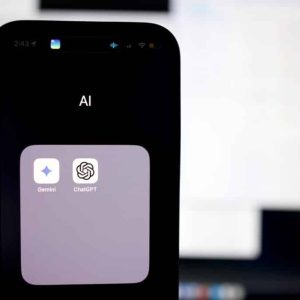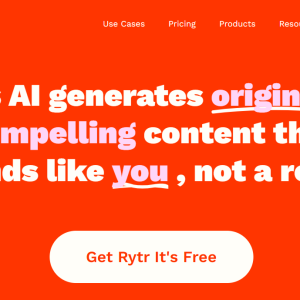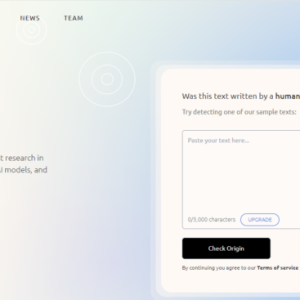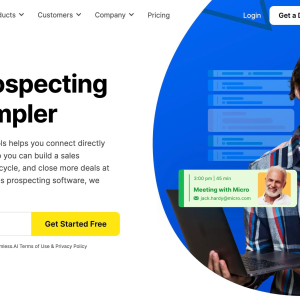Artificial Intelligence (AI) has revolutionized various industries, and marketing is no exception. With the rapid advancements in AI technology, businesses are faced with a challenging decision: should they leverage AI in marketing instead of hiring marketers? Traditionally, marketing has relied on human expertise, creativity, and intuition to strategize and execute effective campaigns. However, AI brings a new dimension to the marketing landscape, offering intelligent automation, data analysis, and personalized customer experiences. This raises the question of whether AI can surpass human marketers in delivering results and whether businesses should consider replacing their marketing teams with AI-powered tools. This essay delves into the advantages and limitations of leveraging AI in marketing, ultimately exploring whether it is a viable alternative to human marketers.
The marketing world is buzzing with talk of artificial intelligence and how it’s revolutionizing the industry. This is causing small- and mid-sized enterprises to leverage AI instead of hiring more marketers.
You are viewing: Should You Leverage AI in Marketing Instead of Hiring Marketers?
As marketing strategies get more and more saturated with AI-powered tactics, it leaves marketers asking one question: How can businesses thrive in an environment where everyone seems to be using the same technology to create similar content?
In this post, we will explore the challenges presented by the rise of AI in marketing and give you a few pointers on how to deliver high-quality content at scale that doesn’t fully rely on automation.
The AI Buzz in Marketing
AI has become the talk of the town in marketing circles.
Businesses, regardless of their size, are exploring ways to harness the power of AI to streamline processes, personalize customer experiences, and optimize marketing campaigns.
61.4% of marketers have used AI in their marketing activities, and this trend is only expected to grow:
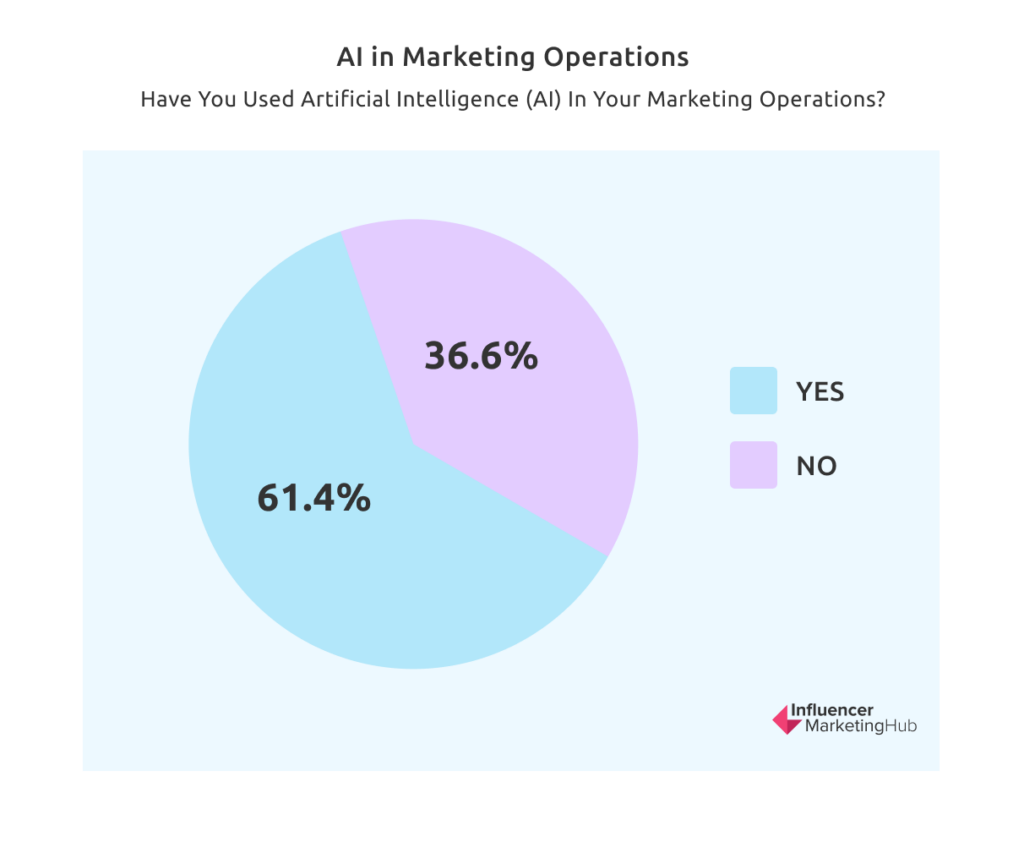
The appeal is clear: AI promises efficiency, cost-effectiveness, and data-driven decision-making. Still, 64% of marketers are concerned that AI will steal their jobs.
There’s this compulsion among businesses to automate as much as possible to reduce reliance on human marketers.
But there’s a glaring downside to too much AI automation: the inevitable demise of brand identity.
Once everyone is leveraging identical tools in the same exact way, producing nigh-identical content and messaging, no brand will feel different from another.
Find Your Brand’s Identity Again
See more : From Podcasts to Blogs: The Best AI Tools for Podcasters
In order to differentiate your brand, think about a puzzle where each piece has its own shape and design, distinct from the others. And just like those unique puzzle pieces, your brand should strive to be the one that perfectly fits into a specific niche, standing out from the rest.

Imagine trying to do a puzzle where all the pieces looked identical. There would be no distinctiveness, no individuality. This is what’s happening in the realm of AI in marketing. The allure of touting AI as a selling point is causing many brands to say the same things, highlight the same selling points, and make their marketing copy or blog posts practically the same as everyone else’s.
This is the wrong way to use AI.
This technology may have enabled businesses to create content and campaigns more efficiently, but it has also led to a homogenization of marketing content. When everyone relies on the same AI tools to generate content, they risk blending into the crowd.
The key to marketing is to make your content relatable and unique. Relatable content is growing significantly this year, but it’s difficult to rely on AI tools like ChatGPT when its writing doesn’t resonate with users.
While AI can produce content quickly, standing out from the competition is how you’ll generate leads. The best way to do this is by creating unique, high-quality and branded content.
Let’s take a look at some strategies to consider.
Bring Back a Creative, Human Touch
It’s honestly amazing how quickly we reached this point. With tools like ChatGPT becoming more mainstream in the last year, brands have quickly learned how to overuse AI. While AI can assist with content creation, human creativity is irreplaceable.
You shouldn’t abandon the creative input of skilled marketers.
Instead, use AI to augment human creativity rather than replace it. The human touch can infuse personality, emotion and authenticity into your marketing, and your audience will inevitably find something special about your content that sets it apart from others.
Data-Driven Personalization
AI excels at mulling over large amounts of data to personalize marketing efforts, but this personalization should not stop at surface-level data. Go beyond demographics and consider the emotional and psychological aspects of your audience. Tailor your messaging to resonate on a deeper level with your target customers.
Use AI for Insights
See more : KoalaWriter vs Jasper: Which Is The Better AI Writer?
AI can provide valuable insights and analytics. Businesses can use AI tools like Sonar to gain a better understanding of their audience, track campaign performance, and identify areas for improvement. These insights can power strategic decisions and fine-tune marketing efforts.

Remember that AI isn’t always accurate. In fact, experts are predicting that ChatGPT’s accuracy is getting worse – sometimes even unable to answer even simple math questions. So always have team members review any insights that ChatGPT is sharing.
Invest in Quality Content That Maintains Brand Consistency
Even in the age of AI, content is still king: 76% of content marketers use content to generate leads. And the most effect type of content for nudging leads into the consideration stage is:
However, you won’t experience these results unless you produce high-quality content.
AI-generated content may be quick, but it often lacks the depth of the human mind. To truly stand out, invest in high-quality content produced by skilled writers. Quality content fosters trust and credibility with your audience, and can help establish your brand as an influencer in your space.
Even as you strive for uniqueness, it’s essential to maintain brand consistency. Ensure that your messaging and branding remain coherent across all channels. Consistency builds brand recognition and trust over time.
Don’t Fully Rely on AI in Marketing
When used correctly, AI in marketing can enhance the efficiency of your campaign. But as more businesses embrace AI, brands risk creating indistinguishable content that blends in with the competition.
To thrive in an AI-saturated landscape, businesses must create unique and creative content. Success in the age of AI marketing requires brands to harness technology while preserving human artistry.
This doesn’t mean that brands shouldn’t use AI. Companies can use AI to expedite the content creation process and stay updated on the latest technology to aid their campaigns – not entirely replace their marketing professionals.
By balancing AI and the human touch, marketers can deliver content that resonates deeply with their target audience.
For more insights and lessons about marketing, check out our Marketing School podcast on YouTube.
That’s a wrap on “Should You Leverage AI in Marketing Instead of Hiring Marketers?” We hope you’ve found a trove of useful insights and fresh perspectives. Your opinions and ideas matter to us—join the conversation below and share your take! Hungry for more tech insights? Dive into our diverse collection of articles where innovation meets practicality. Discover More AI Softwares.
Stay in the loop with the latest in AI and tech – your journey into the digital future continues at guidelisters.com.
#Leverage #Marketing #Hiring #Marketers
Source: https://guidelisters.com
Category: AI

